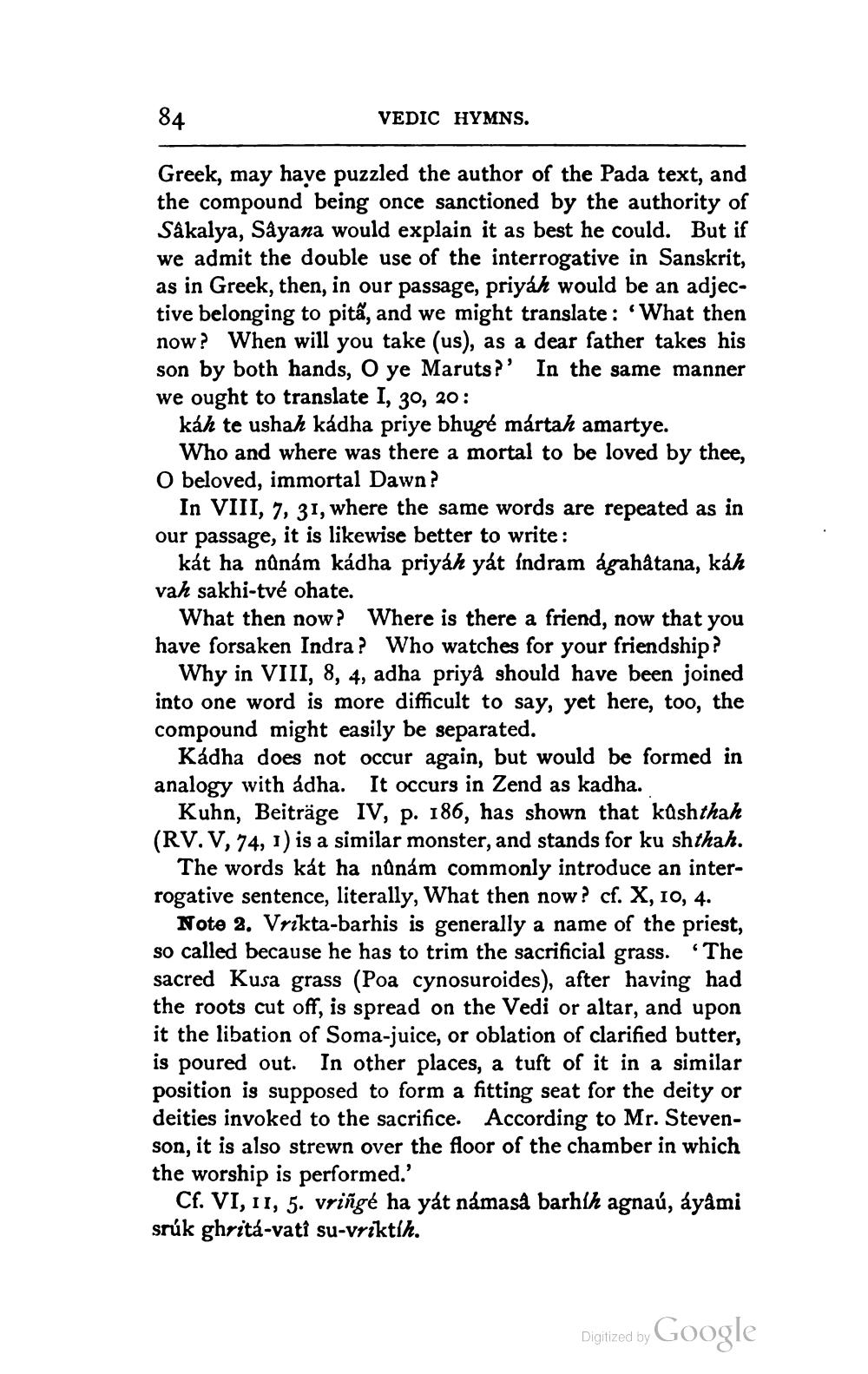________________
84
VEDIC HYMNS.
Greek, may have puzzled the author of the Pada text, and the compound being once sanctioned by the authority of Sakalya, Sayana would explain it as best he could. But if we admit the double use of the interrogative in Sanskrit, as in Greek, then, in our passage, priyah would be an adjective belonging to pitã, and we might translate: 'What then now? When will you take (us), as a dear father takes his son by both hands, O ye Maruts?' In the same manner we ought to translate I, 30, 20:
káh te ushah kádha priye bhugé mártah amartye.
Who and where was there a mortal to be loved by thee, O beloved, immortal Dawn?
In VIII, 7, 31, where the same words are repeated as in our passage, it is likewise better to write:
kát ha nûnám kádha priyah yát indram ágahåtana, káh vah sakhi-tvé ohate.
What then now? Where is there a friend, now that you have forsaken Indra? Who watches for your friendship?
Why in VIII, 8, 4, adha priyà should have been joined into one word is more difficult to say, yet here, too, the compound might easily be separated.
Kádha does not occur again, but would be formed in analogy with ádha. It occurs in Zend as kadha.
Kuhn, Beiträge IV, p. 186, has shown that kashthah (RV. V, 74, 1) is a similar monster, and stands for ku shthah.
The words kát ha nûnám commonly introduce an interrogative sentence, literally, What then now? cf. X, 10, 4.
Note 2. Vrikta-barhis is generally a name of the priest, so called because he has to trim the sacrificial grass. “The sacred Kusa grass (Poa cynosuroides), after having had the roots cut off, is spread on the Vedi or altar, and upon it the libation of Soma-juice, or oblation of clarified butter, is poured out. In other places, a tuft of it in a similar position is supposed to form a fitting seat for the deity or deities invoked to the sacrifice. According to Mr. Stevenson, it is also strewn over the floor of the chamber in which the worship is performed.'
Cf. VI, 11, 5. vriñgé ha yát námasa barhlh agnaú, Syami srúk ghritá-vati su-vriktih.
Digitized by
Digized by Google




